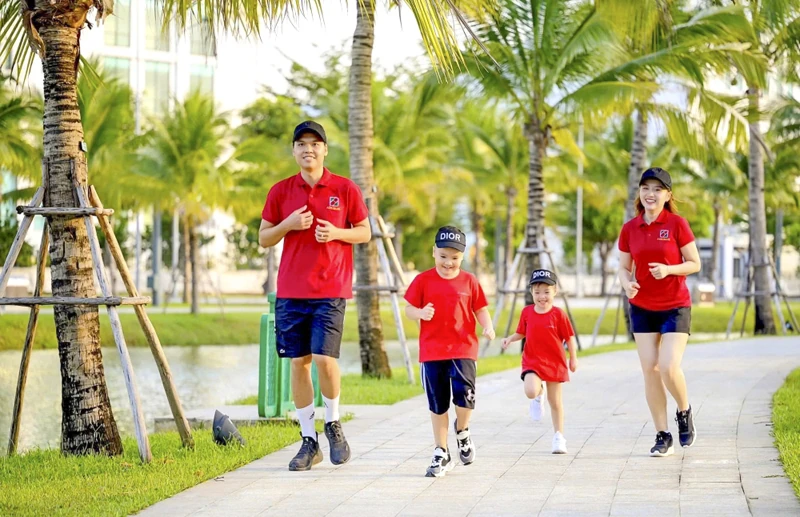
In the midst of modern life, many young families still "keep the fire" of love and happiness. Photo: Hai Dang
The family is considered the cell of society, the cradle that nurtures each person. For individuals, the family is the place where personality is formed, moral values, traditions, lifestyle and national cultural identity are oriented. All human behaviors, attitudes and social emotions are deeply influenced by the family foundation. For society, the family is the "basic cell" - the place to maintain the race, reproduce labor, preserve and transmit cultural values, thereby maintaining social stability. A sustainable society begins with stable and civilized families.
The traditional Vietnamese family is a multi-generational family, usually with 3 to 4 generations living together. The image of grandparents teaching grandchildren, parents taking care of their children, is a characteristic associated with East Asian culture in general and Vietnamese people in particular. However, currently, under the strong impact of urbanization, globalization and digital technology , the Vietnamese family structure is rapidly shifting towards nuclearization: that is, a family consisting of parents and children. Reality shows that many young people, especially in urban areas, when getting married, mostly choose to live separately, promoting independence, freedom and being more proactive in work and life.
Mr. Le Anh Minh (Hac Thanh ward) shared: “After getting married, my parents let us live separately with the hope that my husband and I would be independent and build our own lives. My husband and I both work from morning to afternoon, and our children also go to boarding school in the afternoon. Living separately has helped us be proactive in our work. Our lifestyle and eating habits have also been adjusted to suit the work of our members. However, we have a rule that we maintain a family dinner so that we have time to bond and talk together.”
Not only are nuclear families increasing, many three-generation families are also gradually becoming more flexible in modern life. Like the family of Mrs. Trinh Thi Duyen (Ha Trung commune), the two grandparents live with their children and grandchildren, the son works far from home, the daughter-in-law works in the industrial park, the grandparents both look after the grandchildren and take care of the house. Mrs. Duyen shared: “Because of different jobs and living hours, I let the children take the initiative in eating and living. My husband and I help our children clean the house and take care of the grandchildren. Living together, we bond and maintain traditions, we cannot restrict our children to our will.”
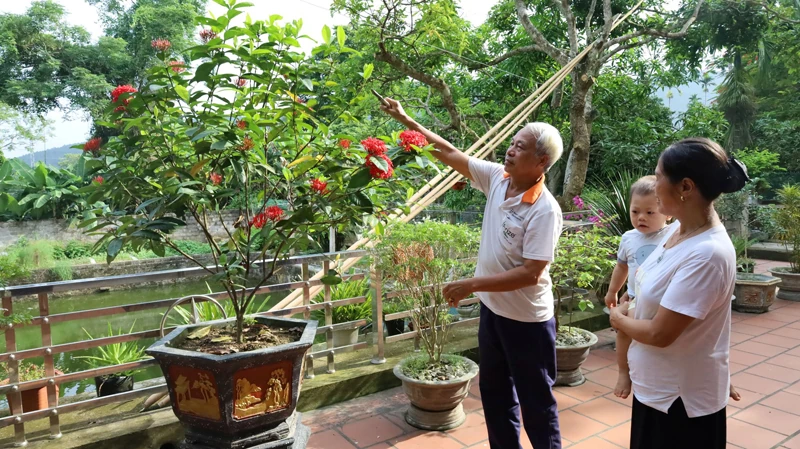
Vietnamese families are becoming more flexible in modern life.
On the positive side, the change in family structure also helps traditional values to be redefined more flexibly. Filial piety is not only expressed by "supporting parents" but also in children knowing how to respect and understand their parents even when living far away from home. The role of women is not only limited to the kitchen, but also extends to social, economic and political spaces. Modern families are no longer measured by the number of generations living together, but by the level of sharing, empathy and responsibility between members. From there, improving both material and spiritual life creates stability, contributing to socio-economic development.
Dr. Hoang Thi Kim Oanh, Head of the Department of Cultural Management, Thanh Hoa University of Culture, Sports and Tourism, said: In today's families, traditional values such as filial piety and solidarity are still maintained but expressed in a more flexible form, associated with gender equality and promoting individuality. This change helps individuals to be more free and creative, but at the same time requires society to have an educational and communication mechanism to balance tradition and modernity.
However, today's families also face significant challenges. Dr. Hoang Thi Kim Oanh also pointed out some challenges such as the breakdown of traditions between generations when each family consists of only two generations, the interaction between grandparents - parents - grandchildren is limited, leading to the gradual loss of traditional inheritance and sharing of life experiences. Next, the small family model, without support from grandparents in childcare, so the pressure of work and children leads to stress and marital crisis. The risk of declining educational role and community cohesion when modern family members have little time for each other, lack of communication and sharing makes children easily influenced by social networks, bad friends or psychological crisis. The risk of cultural and ethical imbalance when foreign values are strongly imported, causing traditional ethical values such as filial piety and community responsibility to be lost if not nurtured in time.
Society is always moving and it is inevitable that families change flexibly to adapt. The important thing is how to preserve and continue the humanistic values and traditions of the family. To accompany Vietnamese families, departments, branches, associations, unions and localities have been coordinating to implement many movements and activities to raise awareness and responsibility of individuals in building happy families and cultural families. In particular, the culture, sports and tourism sector continues to widely implement the Code of Conduct in Vietnamese families; launch many movements and communication activities to build cultural families and happy families. Through these activities, we are gradually contributing to creating a "shield" to protect Vietnamese families, so that the family will still be a sustainable support for each person, a solid foundation of a humane and civilized society.
Article and photos: Quynh Chi
Source: https://baothanhhoa.vn/gia-dinh-viet-chuyen-minh-nbsp-giua-truyen-thong-va-hien-dai-267310.htm


![[Photo] Ho Chi Minh City Youth Take Action for a Cleaner Environment](https://vphoto.vietnam.vn/thumb/1200x675/vietnam/resource/IMAGE/2025/11/04/1762233574890_550816358-1108586934787014-6430522970717297480-n-1-jpg.webp)

![[Photo] Panorama of the Patriotic Emulation Congress of Nhan Dan Newspaper for the period 2025-2030](https://vphoto.vietnam.vn/thumb/1200x675/vietnam/resource/IMAGE/2025/11/04/1762252775462_ndo_br_dhthiduayeuncbaond-6125-jpg.webp)
![[Photo] The road connecting Dong Nai with Ho Chi Minh City is still unfinished after 5 years of construction.](https://vphoto.vietnam.vn/thumb/1200x675/vietnam/resource/IMAGE/2025/11/04/1762241675985_ndo_br_dji-20251104104418-0635-d-resize-1295-jpg.webp)
![[Photo] Ca Mau "struggling" to cope with the highest tide of the year, forecast to exceed alert level 3](https://vphoto.vietnam.vn/thumb/1200x675/vietnam/resource/IMAGE/2025/11/04/1762235371445_ndo_br_trieu-cuong-2-6486-jpg.webp)



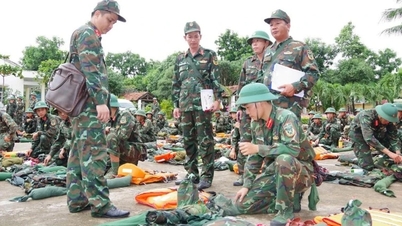

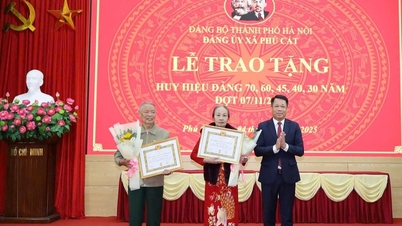









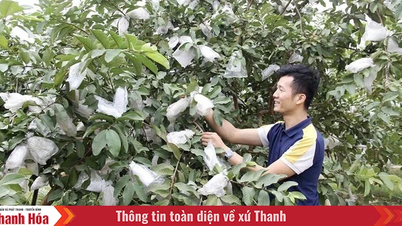
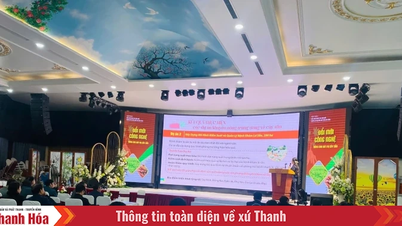
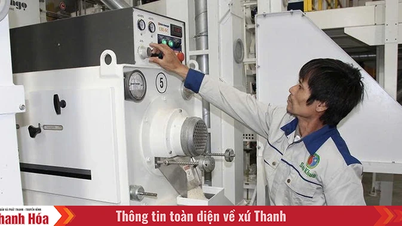
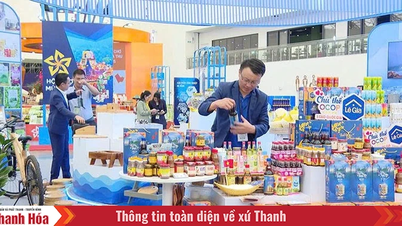
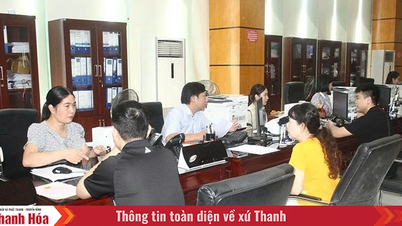
























































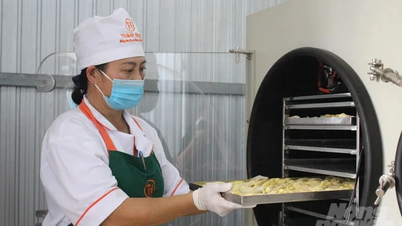













Comment (0)